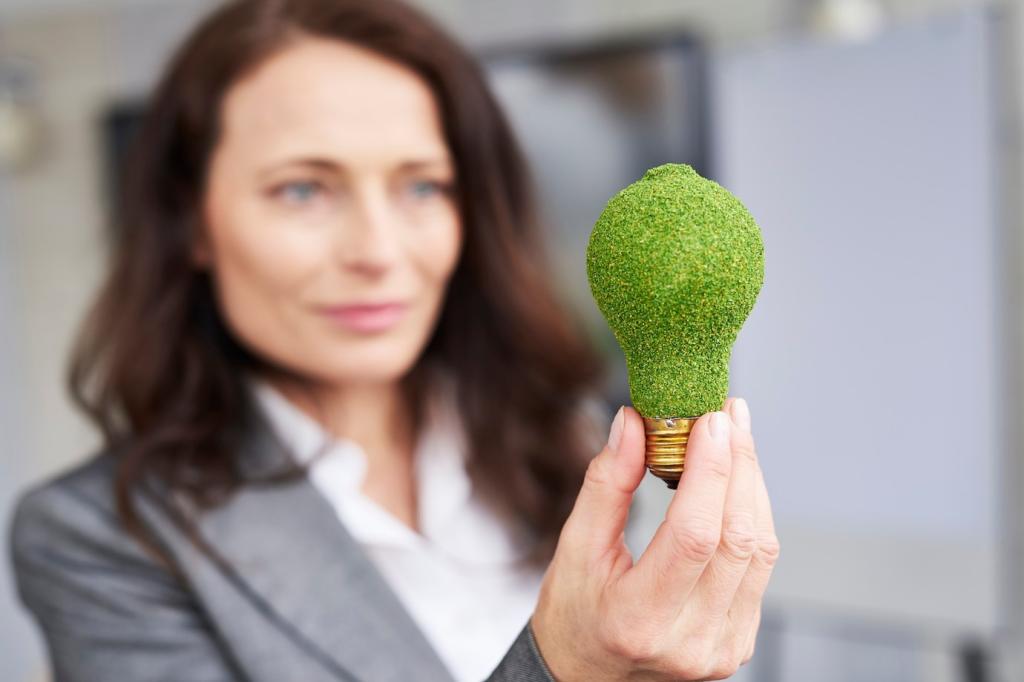Smart home technologies are reshaping the way we interact with our living spaces, offering innovative solutions that not only elevate convenience but also contribute to a more sustainable lifestyle. Integrating smart systems into homes enables greater control over energy use, waste reduction, water conservation, and overall efficiency. As the demand for eco-friendly living grows, these technologies provide a practical pathway to reducing environmental footprints while enhancing comfort and cost savings for homeowners. This webpage explores the core pillars of sustainable smart homes and the technologies that are driving this green revolution.

Energy Efficiency and Management
Smart thermostats are revolutionizing climate control by learning your household’s habits and using sensors to adjust heating and cooling on demand. These devices can automatically lower temperatures when rooms are unoccupied and allow homeowners to customize schedules remotely from their smartphones. By reducing unnecessary heating and cooling, smart thermostats often lead to substantial energy savings over time. Many models also provide detailed reports on energy consumption, helping homeowners identify patterns and additional opportunities for efficiency. Ultimately, the adoption of smart thermostats supports sustainable living by minimizing energy waste and creating a more comfortable, climate-conscious home environment.

Smart Irrigation Controllers
Smart irrigation controllers leverage weather data, soil sensors, and plant requirements to optimize watering schedules for your lawn and garden. These systems can detect rain, soil moisture levels, and seasonal changes, automatically adjusting watering times and durations. By delivering just the right amount of moisture, they significantly reduce water waste compared to traditional timer-based systems. Homeowners benefit from healthier landscapes while cutting down on run-off and overwatering. Many of these controllers can be managed remotely via smartphone apps, providing flexibility and peace of mind even while away from home. Overall, smart irrigation technologies are essential for environmentally conscious gardening.
Leak Detection and Automatic Shutoff Devices
Leak detection technologies equipped with automatic shutoff features are a vital line of defense against water waste and property damage. These sensors can be installed near appliances, water heaters, and plumbing fixtures to continually monitor for leaks or unusual moisture. Upon detecting a problem, the system can notify homeowners immediately through their smartphones and, in many cases, trigger an automatic valve to stop the flow of water. This rapid response minimizes not only water loss but also the potential for costly repairs and property damage. By proactively addressing leaks, these smart systems promote efficient water use and support broader sustainability goals.
Efficient Water Heating Systems
Smart water heating systems offer considerable improvements over conventional heaters by using learning algorithms, occupancy sensors, and remote operation. These heaters are capable of heating water only when needed and often allow homeowners to set schedules based on daily patterns. Additionally, some systems use real-time energy pricing data to heat water during off-peak hours, thereby reducing both energy and water waste. Enhanced insulation and precision temperature controls ensure that water is neither overheated nor wasted through unnecessary standby heating. Smart water heaters not only conserve resources but also provide household members with reliable comfort while supporting sustainable living.
Waste Reduction and Resource Optimization
Intelligent waste sorting bins use sensors and image recognition to help homeowners and families correctly separate recyclables, compostables, and landfill waste. These devices can provide real-time feedback or reminders if a mistake is detected, ensuring that fewer recyclables end up in the trash. Some smart bins are also equipped to compact waste or track disposal habits, offering insights about consumption patterns over time. By automating and simplifying the sorting process, these technologies raise the standard of at-home recycling, making it easier for everyone to do their part in reducing landfill contributions and promoting a circular economy.
Smart refrigerators and pantry management systems help minimize food waste by tracking expiration dates and inventory levels. These solutions can send alerts when food is nearing its expiration or suggest recipes based on ingredients that need to be used soon. Integration with grocery apps allows homeowners to plan shopping trips more efficiently, reducing the chances of over-purchasing perishables. Over time, these smart solutions help families optimize meal planning and cut down on unnecessary waste, leading to both financial savings and a significantly smaller environmental footprint. Embracing such technologies facilitates a shift towards mindful and sustainable consumption.
Smart composting units have made at-home organic waste management more accessible and user-friendly. These appliances use sensors to monitor temperature, moisture, and aeration, automatically adjusting conditions to accelerate decomposition. Some systems can even notify users when compost is ready to be harvested or if adjustments are needed. By efficiently converting kitchen scraps and yard waste into nutrient-rich compost, these devices help divert waste from landfills while improving soil health in gardens. Automated composters also reduce odors and mess, encouraging more households to participate in sustainable waste practices and close the loop in their own green spaces.

